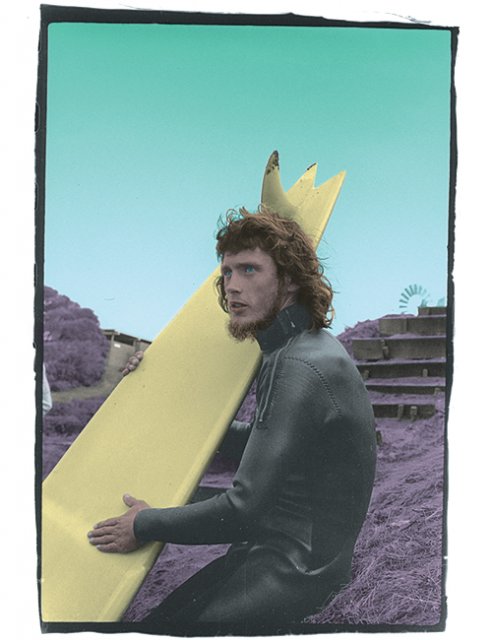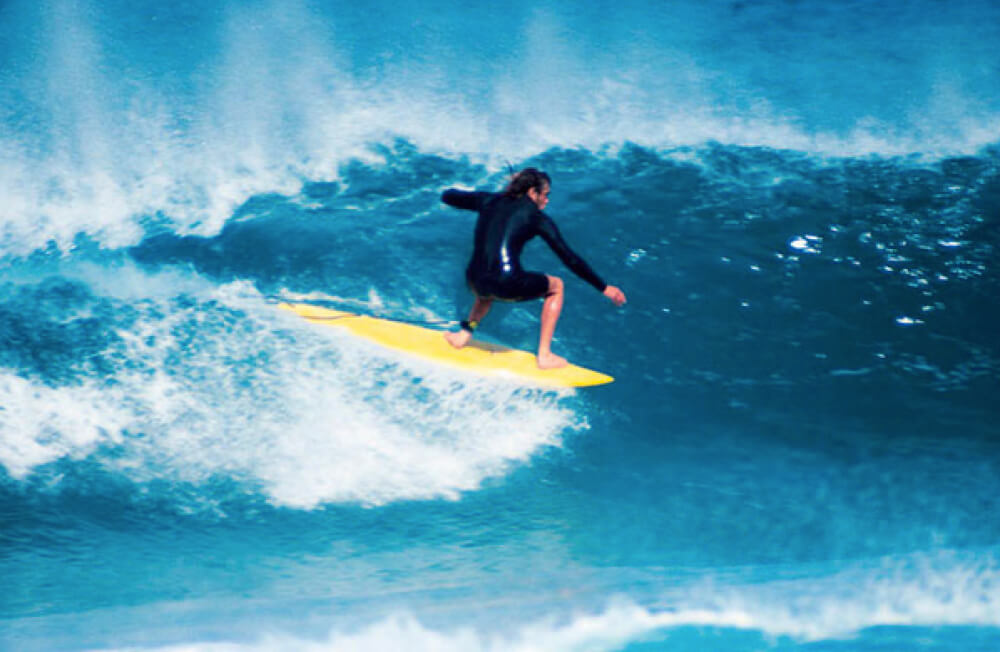When Wayne Lynch Speaks, We Listen
What I know about…
Sharks – It’s part of life, part of surfing. Ever since I was a kid we had to get out of the water from time to time. It’s very strange to me because people don’t seem to realise what the ocean really is. They take it for granted. People do some pretty silly things in regards to putting themselves at risk. Paddling across rivers that are in flood. Surf schools with little kids in rivers when it’s brown and fully in flood. I’ve seen dogs out behind the whitewater. People thinking it’s all cool and I’m looking at it going, “That’s ridiculous, it’s going to bring a shark in and it’s going to go for the dog but then it’s going to start thinking there’s a food source there.” I see people go for a swim as the sun is setting and swim out 300 metres into the night. I could go on and on and on. It’s just part of the ocean. It’s a wilderness, you go out there and there’s a certain risk and it can be low, medium or high. You have to be aware and assess situations and keep a look out.
New generations of surfers – I don’t think surfers are as informed, as aware, generally speaking. There’re exceptions to everything I’m saying, I don’t mean this to slate modern surfers, it’s just that there’re a lot of people that use the ocean now and they really don’t have a knowledge or understanding of what’s going on out there. I think that’s a really big difference.
We grew up without legropes, swimming around out there you worked out rips and currents and how to cope with all the different situations. Even if it was particularly dangerous, you still learned how to look after yourselves. We were always scanning the ocean. You’re looking around before you go out, not just looking at the waves and jumping in the water. I think so many people have come to the ocean and gotten in the water in the modern era and I think they’ve come without that background or education of what the ocean is really about.

Surf forecasting – We understood weather. We had to learn and understand weather patterns and we knew about the swells for ourselves and we understood when there would be swell coming and what the direction might be and the type of winds that were going to be there. You learnt that because you had to know it. That was part of the knowledge of being a surfer. Now people get told, they don’t learn they just get told there’s a wave down there or you look it up and you go, so it’s a completely different experience.
Passing on knowledge – Personally, I absolutely love it. That’s what I grew up with, I started listening to the old guys talk about surfing, listening to them talk about the ocean, talk about how they dealt with big surf, what they did to be able to survive. They talk about how that whole things works, how to relax in really intense situations, when you’re in rips you don’t swim against them, even if it takes you right out to sea or right down the beach. Don’t be afraid, just go with it and save your energy and learn to work in with the ocean. Learn to be a part of it and learn to understand what you are part of. I think that’s the real culture of surfing. It’s far more than just being able to do off the tops and aerials and all the rest of it. There’s a huge volume of knowledge that you can learn and really should know.
The surfer/shaper – It’s a shame that surfers of a high level aren’t shaping. There is a certain percentage of those surfers that don’t really understand a lot of the mechanics of surfboard design. They know what feels good under them but they’re not necessarily aware of what it is that’s making that board good for them. Or what the possibilities are to really enhance their surfing. They’re receiving something and working with what they have, they’re not able to have insight into the nature of that design and be able to adjust it for themselves. They’re dependent on someone else. Now that might be okay but I don’t know what’s going to happen when my generation, like Simon Anderson and a whole series of other surfer/shapers, have gone. How do you make a 9’6” gun for 20 foot surf if you’ve never surfed it? I wonder about that sort of thing. I’m not saying it’s going to fall in a heap, I can see problems up ahead if something doesn’t change again. And that’s why it is important for that knowledge to be passed on.
Being marginalised – If you’re not in the contest thing, somehow you don’t add up. You’re not important or somehow you’re just not relevant to surfing. And as you grow older the same thing happens. You’re no longer in that sort of position for them to use you, or at least that’s what they think. There may be good ways to use you but it’s a really narrow paradigm that the industry set a few generations ago. I think that needs to broaden out. More embracing and more respectful for what’s really important in surfing, beyond the pro surfers. I’m not saying that’s not important, I must emphasise that, because people think I’m anti-pro surfing. I admire the guys. The surfing’s brilliant, just not the only thing in surfing, not the only thing that’s important. I think too many people come into surfing wanting to be pros now when they get to be reasonably good surfers and they’re missing the richness of their culture, the richness of being a surfer, all those skills that they could learn. Surfing is so much more than market appeal or being a winner.
